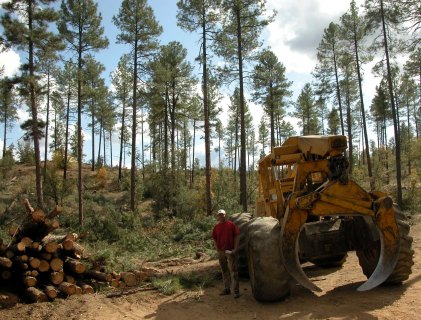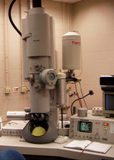Technology Transfer Agreements
Technology transfer agreements were developed to improve cooperation with commercial firms to convert research to usable information and technology. This cooperation increases the benefits to the public and commercial firms.
The following types of agreements allow FPL, universities, government, and industry to work together in developing new technologies. They do vary based on the level of contribution from each party and the expected benefits. Ultimately the purpose of technology transfer is to better coordinate research activities between the parties so the results are efficiently transferred to the public.
Cooperative Research and Development Agreement (CRADA)
The CRADA was created by the Federal Technology Transfer Act of 1986 (Public Law 99-502). The CRADA authorizes FPL scientists to work collaboratively with private firms to help commercialize technology based on collaborative research. The CRADA provides the cooperative firm with the first right to exclusive licenses on patented inventions discovered or developed under the agreement. To enter into a CRADA, the research objective must be consistent with FPL's mission. The CRADA is effective when the cooperating firm provides the know-how needed to develop and commercialize a product, process, or service. The firm may also contribute funds to cover some of the added costs to FPL for work done under the agreement; or the firm may provide personnel, equipment, or materials. In some cases a CRADA may involve no transfer of funds to FPL. As a cooperator, FPL provides research personnel, laboratory facilities, materials, equipment, supplies and other 'in-kind' contributions.
Challenge Cost-Share Agreement (CCS)
The CCS is an agreement with an entity to work cooperatively with FPL to produce something of mutual interest. Costs are shared between FPL and the partner.
Cooperative Agreement (CA)
A CA is entered into when FPL provides support or stimulation to a cooperator's program of mutual interest. FPL is substantially involved in the research, and has oversight responsibility. Both parties make contributions towards the research.
Memorandum of Understanding (MOU)
The MOU is needed when there is a common purpose for the coordinated activities. No funding or value changes hands and it is not a fund-obligating document.
Research Joint Venture Agreement (RJVA)
The RJVA is used when there is a mutual benefit of the basic or applied research. The parties must share a mutual benefit in addition to a mutual interest. Mutual benefit exists when the parties benefit in the same qualitative way from the objectives of the agreement. Each party makes a minimum monetary contribution.
Research Cost-Reimbursable Agreement (RCRA)
The RCRA is used for acquiring goods and services, including personal services, for mutual benefit from a State Cooperative Institution.
For more information, please contact:
Herbert F. Sakalaucks
Forest Products Laboratory
One Gifford Pinchot Drive
Madison, WI 53726-2398
Phone: (608) 231-9282
Fax: (608) 231-9585
Email: hsakalaucks@fs.fed.us








